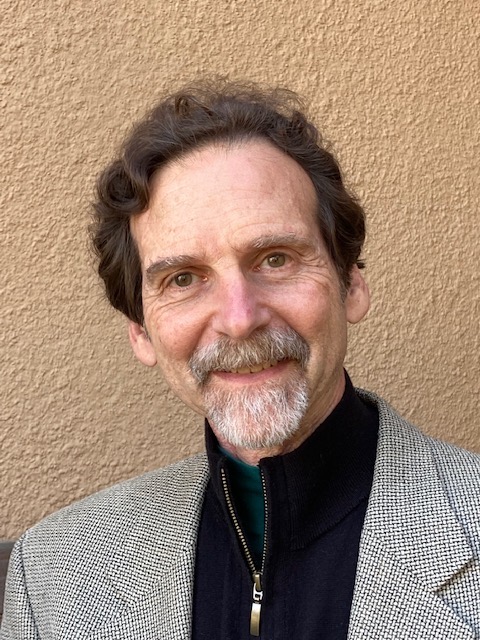
COURSE DESCRIPTION AND OVERVIEW:
This workshop will provide skills for therapists who are challenged by the cultural and political stances of their clients and how those stances manifest and potentially affect the therapeutic relationship. Dr. Schneider will introduce the concept of the “polarized mind” (the fixation on a single point of view to the utter exclusion of competing points of view), which he developed based on extensive existential-depth and social-psychological research on the roots of human destructiveness. Emerging from concern about the destructive effects of intra-psychic and societal polarization, along with a resultant deep interest in helping individuals and communities depolarize, Dr. Schneider spent over fifteen years developing a one-on-one depolarization dialogue format called “Experiential Democracy Dialogue” (detailed in his book The Depolarizing of America: A Guidebook for Social Healing). This approach is a hybrid of his experience as a leading figure in the existential-humanistic psychological and psychotherapeutic movements with his experience as a trained moderator for the nation-wide organization called “Braver Angels.” Braver Angels is a grass-roots citizens’ movement that uses a highly structured group (and individual) format to bring self-identified liberals and conservatives together for “living room” style dialogues.
Experiential Democracy Dialogue, as a one-on-one conflict mediation format, provides a unique resource for clinicians struggling with the ways that socio-cultural and political differences show up in the therapeutic encounter. Techniques and principles from this approach can be utilized by therapists to more adaptively work with the aforementioned challenges as they arise in therapy by helping them develop skills to be more present to clients from highly contrasting backgrounds, develop greater capacities to empathize with and find common ground with such clients, and develop greater capacities to experience curiosity and enhance exploration with such clients who formerly elicited anguish or even revulsion.
In this workshop, Dr. Schneider will outline five phases of Experiential Democracy Dialogue – Guided Visualization, Providing Background, Taking a Stance, Identifying Stereotypes and Results/Discovery – and then demonstrate how to employ Experiential Democracy Dialogue in the therapeutic relationship. Dr. Schneider will then support participants to be placed into dyads to role-play therapist-client, with the “client” embodying the actual client with whom the therapist has a cultural or political conflict as they engage the five phases together. Participants will then be able to reflect on and begin to integrate how utilizing Experiential Democracy Dialogue techniques and core concepts can help strengthen their therapeutic relationships with clients who hold strong cultural and political differences from them.
LEARNING OBJECTIVES:
Participants will be able to:
• Explain two (2) core concepts of the Experiential Democracy Dialogue
• Identify two (2) phases of the Experiential Democracy Dialogue that they can use to reduce polarization with clients
• List two (2) ways that utilizing Experiential Democracy Dialogue techniques can strengthen the therapeutic relationship
COURSE OUTLINE:
- 1-1:05: Introduction to the workshop
- 1:05–1:15: Introduction to and summary of the “polarized mind” as context for the development of Experiential Democracy Dialogue
- 1:15-1:35: Explanation of Experiential Democracy Dialogue
- 1:35-2:30: Demonstration of Kirk Schneider facilitating the utilization of Experiential Democracy Dialogue between therapist and client. He will work with a pair of individuals - one role-playing the therapist and the other the client with whom the therapist feels challenged and activated due to the latter’s cultural or political view – walking them through 5 phases of Experiential Democracy Dialogue
- 2:30-3:30: Dyad exercise – participants are placed in pairs and Kirk Schneider will guide the pairs through the exercise in which one partner agrees to role-play the therapist and the other the client.
- 3:30–4: Large group Q&A and wrap-up
INSTRUCTIONAL METHODS:
The workshop is a mixture of didactic, demonstration and experiential methods.
LIMITATIONS:
This presentation is intended to be an introduction to therapists in how to utilize the Experiential Democracy Dialogue in strengthening the therapeutic relationship. Participants should not expect to exhaustively explore the topic nor should they expect to receive more than preliminary experiential training.
BRIEF BIOGRAPHY:
Kirk J. Schneider, PhD, is a licensed psychologist and leading spokesperson for contemporary existential-humanistic psychology. Dr. Schneider is a cofounder and current president of the Existential-Humanistic Institute (an award-winning psychotherapy training center), Council Member and Candidate for President of the American Psychological Association (APA), past president (2015-2016) of the Society for Humanistic Psychology (Division 32) of the APA, recent past editor of the Journal of Humanistic Psychology (2005-2012), a trained moderator for the conflict mediation group Braver Angels, and an adjunct faculty member at Saybrook University and Teachers College, Columbia University. Dr. Schneider is also an Honorary Member of the Society for Existential Analysis and the East European Association for Existential Therapy. His work on existential-integrative psychotherapy has been featured in a special issue of the Journal of Psychotherapy Integration (March, 2016) and is the inspiration for the psychotherapy training program of the Living Institute, Toronto, Canada. A Fellow of five Divisions of the APA, Dr. Schneider has published over 200 articles, interviews and chapters and has authored or edited 13 books including The Spirituality of Awe, The Polarized Mind, Awakening to Awe, The Handbook of Humanistic Psychology, Existential-Humanistic therapy, Existential-Integrative Psychotherapy, The Wiley World Handbook of Existential Therapy, and The Depolarizing of America: A Guidebook for Social Healing. Dr. Schneider’s work has been featured in Scientific American, the New York Times, Psychology Today and many other health and psychology outlets.
DISCLOSURE:
The presenter of this course has authored and contributed to the publication of many books in the field of existential-humanistic therapy. The statements below list out the instructors’ publications that will be referenced in the course and the instructors’ relationship regarding financial benefit from the sale of the individual publications.
Kirk Schneider is the author of The Polarized Mind and The Depolarizing of America, published by the University Professors Press and would benefit financially from the sale of these books.
REFERENCES:
Baesler, E.J. & Lauricella, S. (2014) Teach peace: Assessing instruction of the nonviolent communications and peace course. Journal of Peace Education, 11, 46-63. https://doi.org/10.1080/17400201.2013.777899
Cohen, F. (2017). You’re hired: Mortality salience increases Americans’ support for Donald Trump. Analyses of Social Issues and Public Policy, 17(1), 339—357.
Doherty, W. J. (2020). My Journey as a Citizen Therapist. Journal of Humanistic Psychology, 60(4), 477–487. https://doi.org/10.1177/0022167819899594
Schneider, K.J. (2013). The Polarized Mind: Why It’s Killing Us and What We Can Do About It. University Professors Press.
Schneider, K. J. (2015). Presence: The core contextual factor of effective psychotherapy. Existential Analysis, 26, 304-312.
Schneider, K. J. (2016). Existential-integrative therapy: Foundational implications for integrative practice. Journal of Psychotherapy Integration, 26, 49-55. http://dx.doi.org/10.1037/a0039632
Schneider, K.J. (2017). The Chief Peril Is Not a DSM Diagnosis but the Polarized Mind. Journal of Humanistic Psychology, 59(1), 99–106. https://doi.org/10.1177/0022167818789274
Schneider, K.J. & Fatemi, M. (2019, April 16). Today’s Biggest Threat: The Polarized Mind. Scientific American Guest Blog. https://blogs.scientificamerican.com/observations/todays-biggest-threat-the-polarized-mind
Schneider, K.J. (2020). The Depolarizing of America: A Guidebook for Social Healing. University Professors Press.
Shaver, P.R. & Mikulincer, M. (2012). Meaning, mortality, and choice: The social psychology of existential concerns. APA Press.
Waldroff, K. (2020). Healing the political divide: How did we become such a divided nation and how can psychologists help us bridge the gap? APA Monitor, 52.
CANCELLATION POLICY:
Cancellation of your registration with full refund can be done up to 7 days before the event. Simply send an email requesting to cancel to ppcsalem@gmail.com.
ACOMODATIONS FOR THE DIFFERENTLY ABLED:
The CE Company's training facilities are handicap accessible. Individuals needing special accommodations, please contact the Private Practice Colloquium ppcsalem@gmail.com.
GRIEVANCE POLICY:
The Private Practice Colloquium, Inc. (PPC) and The CE Company seek to ensure equitable treatment of every person and to make every attempt to resolve grievances in a fair manner. Please submit a written grievance to PPC, 564 Loring Avenue, Salem, MA 01970 or to The CE Company. Grievances will initially be directed to the training instructor. Grievances would receive, to the best of our ability, corrective action in order to prevent further problems. If you have questions or concerns, contact PPC at (781) 718-9205 or The CE Company at .

The CE Company is approved by the American Psychological Association to sponsor continuing education for psychologists. The CE Company maintains responsibility for this program and its content.
Continuing education credit is awarded by the CE Company for the following disciplines:
Social Workers:
The CE Company is entitled to award continuing education credit for Social Workers. Please visit The CE Company to see all states that are covered for Social Workers. The CE Company maintains responsibility for this program and its content. Social Workers completing this program will receive 3.0 clinical hours of clinical continuing education credit.
Licensed Mental Health Counselors/Licensed Clinical Professional Counselors:
The CE Company is entitled to award continuing education credit for Licensed Professional Counselors/Licensed Mental Health Counselors. Please visit The CE Company to see all states that are covered for LPCs/LMHCs. The CE Company maintains responsibility for this program and its content. LPCs/LMHCs completing this program will receive 3.0 hours of continuing education credit.
Psychologists:
The CE Company is approved by the American Psychological Association to sponsor continuing education for Psychologists. The CE Company maintains responsibility for this program and its content. Psychologists receive 3.0 hours of continuing education credit upon completing this program. Please visit The CE Company for further information.
Nurses:
As an American Psychological Association approved provider, the CE Company programs are accepted by the American Nurses Credentialing Center (ANCC). Please visit The CE Company for further information.
Licensed Marriage & Family Therapists:
The CE Company is entitled to award continuing education credit for Licensed Marriage & Family Therapists. Please visit The CE Company to see all states that are covered for LMFTs. CES maintains responsibility for this program and its content. LMFTs completing this program will receive 3.0 hours of continuing education credit.